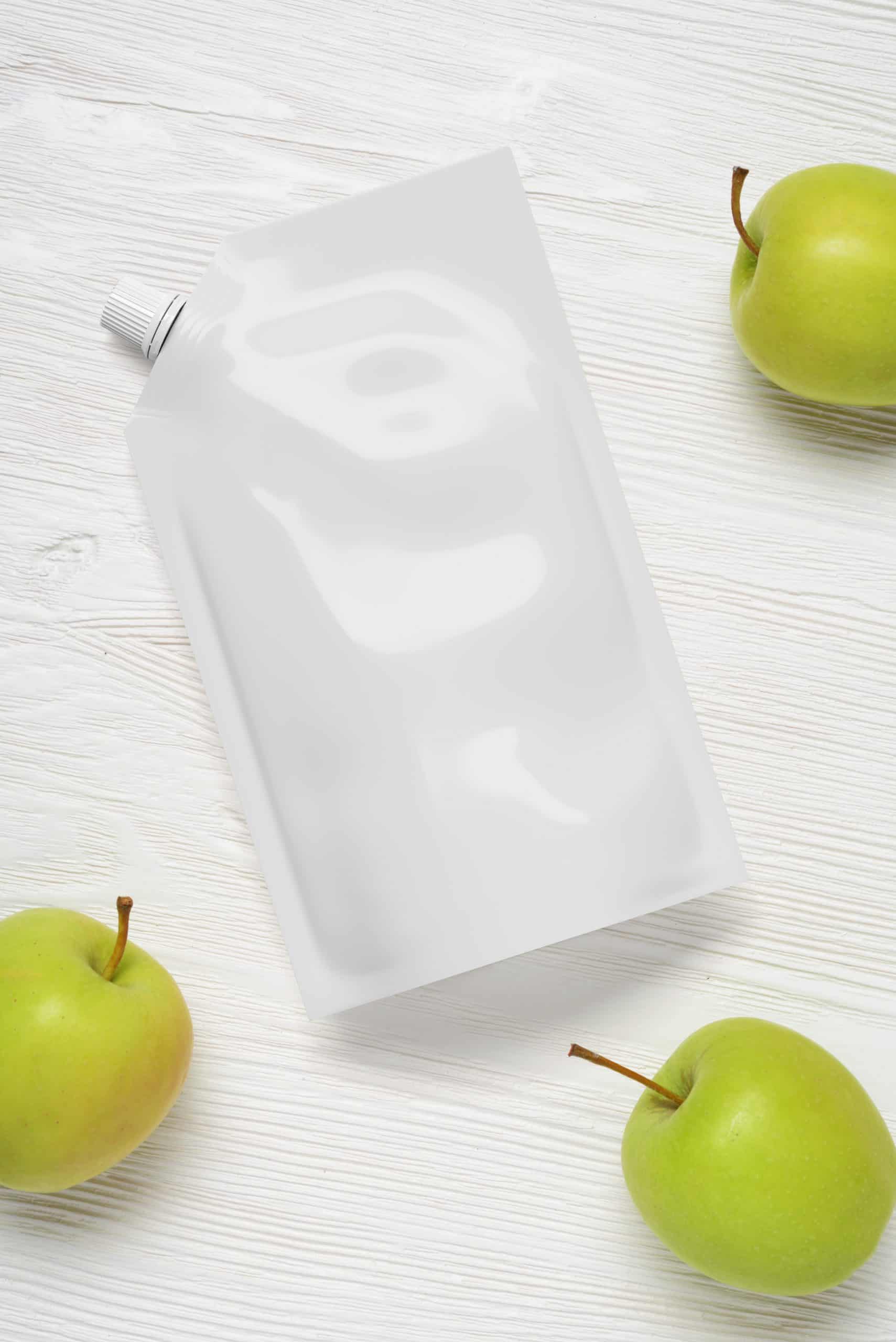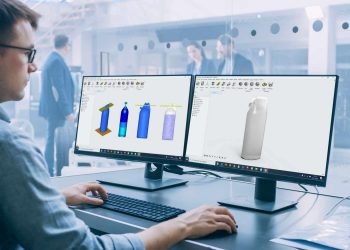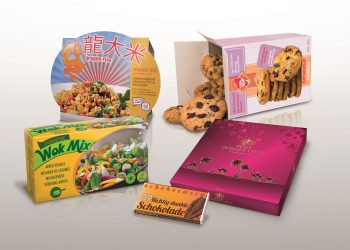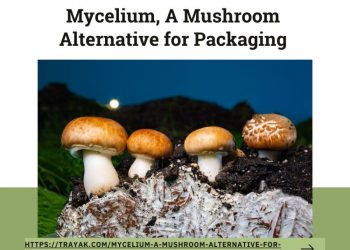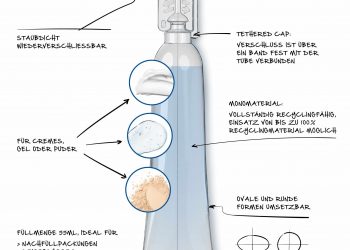New study confirms environmental benefits of using pouches for some food products
A life cycle assessment study, carried out by the Institute for Energy and Environmental Research (ifeu), shows flexible pouches are better packaging options, in terms of environmental performance, for olives and pasta sauce.
The new study, which investigates the environmental performance and impacts of multi-material pouches used for pasta sauce and olives, and compares them with alternative packaging systems, has found flexible pouches offer clear advantages.
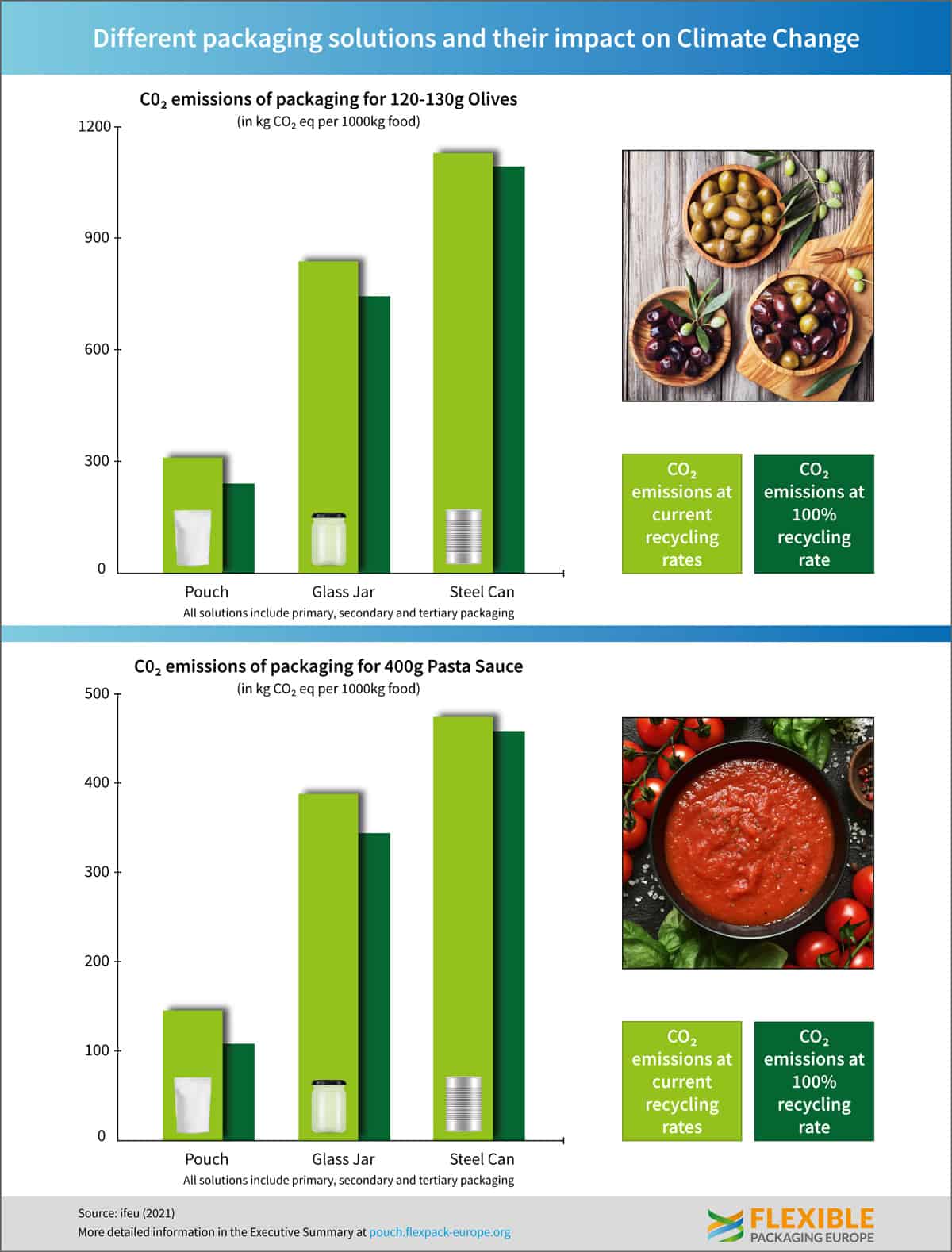
The study, commissioned by Flexible Packaging Europe, was conducted by the ifeu institute in Heidelberg, Germany using a life cycle assessment (LCA) approach. It was based on the market situation in Europe in 2020. Alternative packaging systems examined were glass jars and steel cans, which are commonly used for these products in Europe. The entire packaging systems were considered, including primary, secondary and tertiary packaging.
In the comparison, the advantages of pouches were underlined in almost all impact categories of the LCA. In the category Climate Change (carbon footprint) the flexible pouches showed a more than 60% lower impact than the rigid alternatives. The only exception was aquatic eutrophication, the impacts of which stem from more cardboard used in secondary packaging, which is necessary to achieve enough stability for transportation.
Commenting on the study, the ifeu project manager Frank Wellenreuther said, “From an environmental viewpoint, the choice of multi-material pouches for the packaging of pasta sauce or olives on the European market is recommended when compared to the alternative packaging systems commonly used. By using LCA techniques it is clearly shown that these flexible packaging formats are less impactful on the environment and their potential can be further enhanced with higher recycling rates.”
Despite the common focus on recycling as the main sustainability indicator for packaging, the study found that the end-of-life of the packaging does not always play a major role on the overall environmental performance. The hypothetical application of a 100% collection for recycling rate, to some extent, reduced the impact for all packaging systems, without changing the ranking order between these packaging systems.
The study’s findings show clearly that flexible packaging is an effective route to minimising environmental impacts. In addition, the entire value chain is actively working on its recycling performance and making flexible packaging even more sustainable.
More details of the LCA are available in the Executive Summary.
The recognised voice for the European flexible packaging industry
- FPE is a partner with many important European institutions including Commission, Parliament, and Council of Europe
- FPE liaises and works closely with relevant associations and industry representatives.
- FPE participates in relevant EU working groups and committees
Despite its tight sector focus FPE has established a strong reputation in Brussels through the provision of timely, relevant and clear information on the flexible packaging industry.
More info at www.flexpack-europe.org

